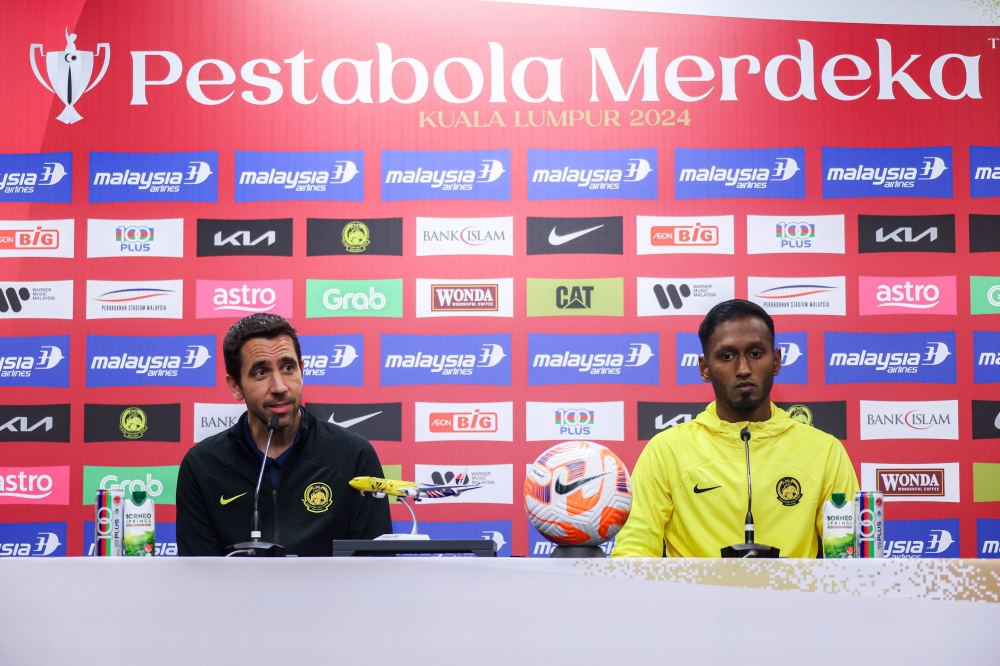KUALA LUMPUR, Sept 4 — Four teams will compete in the 43rd edition of the Merdeka Tournament this year, marking 67 years since the tournament was first introduced to commemorate Independence in 1957.
The participating nations in the event — also known in Malay as Pestabola Merdeka — will be Tajikistan, Lebanon, the Philippines and host nation Malaysia. The tournament kicks off today.
Defending champ Tajikistan will face Lebanon, while the Harimau Malaya will face the Philippines later tonight. The winners to face off in the final match this Sunday, while the losers will vie for the third place on the same day.
The Merdeka Tournament was once considered a prestigious footballing event. It was given the accolade “the Grand Old Lady of Asia” because it was seen as a proving ground for some of the world’s top footballing nations and clubs.
But it has lost much of that prestige over the years as support for the tournament continues to dwindle. Ahead of this year’s tournament, the Football Association Malaysia (FAM) said less than 1,000 tickets have been sold just two days before the opening game.
Here are some key points about the event and some theories about what’s causing the plunging support.
How did the Merdeka Tournament come about?
The four-team tournament was introduced shortly after Malaya gained independence in 1957, making it Asia’s oldest football event.
“Merdeka” is the Malay word for independence and the tournament was named after the historic moment as a commemoration. It was founded by Tunku Abdul Rahman, Malaysia’s first prime minister who was also president of the Asian Football Confederation at the time.
The tournament was held annually from 1957 to 1988. Within that period, the tournament had participants from countries that are now World Cup staples like Japan, South Korea, the Czech Republic, Ghana and Morocco.
Before renovation work began in 2001, the tournament was traditionally held at the iconic Merdeka Stadium, where Tunku Abdul Rahman declared Malaya an independent state.
Malaysia has won the tournament the most, 10 times, winning the first time only at the second edition of the games in 1958. The first champion was Hong Kong XI, a selection of Hong Kong’s first division league players. Indonesia was the runner-up.

Why did it matter back then?
The Merdeka Tournament went on to inspire similar events in other Asian countries, such as South Korea’s President’s Cup and Thailand’s King’s Cup.
In the socio-political historical context, the tournament’s success helped boost Malaysia’s image as a modern nation capable of hosting a major international event. It was also seen as a platform that amplified camaraderie among Asian nations, which aspired to challenge Western domination of what is arguably the world’s most popular sport.
Fifa, the world football governing body, ranks games in the Merdeka Tournament as Class A friendly matches, which awards points to participants that contribute to their Fifa ranking.
Football news website Goal.com wrote that the rankings have been used for the purposes of seeding for the finals and qualification stages of the World Cup.
Why is this year’s tournament getting so little interest?
There are a few theories out there, but it’s important to note that decline in support started decades ago, which led the tournament to be discontinued in 2013. In that year’s tournament, only the under-23 squads played, with Malaysia’s U23 beating Myanmar’s U23.
The demise has been attributed to several factors, including the emergence of more competitive regional tournaments that pulled bigger footballing nations away from the Merdeka Tournament. The quality of the Malaysian national squad itself has been called into quetion, which meant most nations didn’t see any value in participating.
The Merdeka Tournament was only revived last year, with Tajikistan emerging as the champion.
This year’s edition of the event is again marred by the prospect of extremely poor turnout. FAM suggested one of the reasons could be a boycott by supporters but did not elaborate on what is driving it.






















